According to Globocan 2022 (International Agency for Research on Cancer Project), Vietnam records more than 24,400 new cases and more than 22,500 deaths from lung cancer each year. Most lung cancer patients are detected at a late stage, making treatment costly and ineffective, especially causing a huge burden on the socio-economy with high costs.
Dr. Nguyen Trong Khoa - Deputy Director of the Department of Medical Examination and Treatment Management (Ministry of Health) emphasized this when speaking at the Workshop on Lung Cancer Screening: International Experience and Orientation in Vietnam, organized by the Institute for Cancer Prevention Research (National Cancer Institute) - K Hospital in collaboration with AstraZeneca Vietnam Company Limited on April 11, in Hanoi.
Screening for early detection
Professor Le Van Quang - Director of K Hospital, Director of the National Cancer Institute emphasized that lung cancer is currently the leading cause of cancer death in Vietnam in both men and women, after liver cancer and breast cancer. Currently, with advances in science and technology, cancer treatment is multimodal, combining many measures together. For patients with lung cancer, if detected early, the chance of successful treatment can increase many times, thereby reducing the risk of death and saving treatment costs.
“In the treatment of lung cancer, each country has a different priority strategy. This is a disease with a high incidence rate and there have been many remarkable advances in treatment to cure patients when detected early. Therefore, building an effective screening program and disease management system is urgent,” said the Director of the National Cancer Institute.
At the conference, prestigious international experts shared successful experiences in advanced countries.
Professor Pan-Chyr Yang - National Taiwan University (China) introduced the TALENT model that helps detect up to 90% of stage 0-I lung cancer cases in non-smokers, while promoting changes in national health policy.
Professor Pan-Chyr Yang emphasized that Asia is currently the region with the largest lung cancer burden in the world, with 63 deaths due to lung cancer in this region. Notably, among the causes of lung cancer, smoking accounts for a high proportion.
“Through research conducted in Taiwan (China) over many years, it has been shown that low-dose CT scans every 2 years are effective in detecting lung cancer at an early stage. Because the cost of a low-dose CT scan like in Taiwan is about 140 USD, but if you do not screen early, when you have cancer at a late stage, taking 1-2 modern drugs every day will cost up to 140 USD per pill,” Professor Pan-Chyr Yang cited. Therefore, effective low-dose CT scans help patients detect early, remove tumors and be cured.
Domestic and international delegates discussed at the workshop. (Photo: PV/Vietnam+)
Professor Kim Yeol - National Cancer Center of Korea presented the experience of implementing a nationwide screening program, especially emphasizing the importance of quality control and data connection from registration to treatment.
“Lung cancer is considered the number one killer among cancers. In Korea, 23% of people with lung cancer are detected at an early stage and more than 80% are cured. Currently, in the early detection of lung cancer, chest X-rays cannot detect it completely, however, low-dose CT scans are effective in screening for small benign lung lesions or lung cancer,” said Professor Kim Yeol from Korea.
In Korea, a lung cancer screening guideline has been implemented since 2015 and recommends low-dose CT for people at high risk of lung cancer such as high-risk people and heavy smokers.
Lung cancer registry study launched
Associate Professor Do Hung Kien - Deputy Director of K Hospital emphasized that Lung cancer is one of the leading causes of cancer death. Currently, there are many advances in the treatment of lung cancer from early to late stages. At K Hospital, each year there are about 12,000 visits related to lung tumors and treatment for about 3,200 new cases. It is noteworthy that up to 75% of lung cancer patients come for examination at late stages, thus creating a burden of treatment.
For early stage patients, the standard treatment in Vietnam is surgery followed by adjuvant targeted or immunotherapy. The core issue to improve survival is still early detection screening.
Dr. Kien analyzed some common barriers to lung cancer screening in Vietnam, which are that lung cancer screening is currently facing many difficulties due to lack of equipment and specialized infrastructure. In addition, awareness among people and medical staff is inadequate, health insurance does not cover screening methods. Lung cancer patients are women and patients without high risk factors.
The Deputy Director of K Hospital recommended that in the treatment of lung cancer patients, there should be support policies from health insurance to increase access to new therapies and early screening and diagnosis for lung cancer patients in Vietnam to prolong the lives of patients. In addition, there should be a reduction in drug prices to increase patients' access to new treatments.
As a partner in lung cancer registration research, Ms. Van Thi Thu Suong - Medical Director of AstraZeneca LLC said that AstraZeneca is not only committed to providing advanced treatment solutions but also supporting the Ministry of Health and medical facilities to implement initiatives to promote screening and early detection of lung cancer. AstraZeneca accompanies the Cancer Prevention Research Institute of K Hospital and 07 hospitals nationwide to conduct lung cancer registration research, long-term patient monitoring until 2030.
Dr. Nguyen Trong Khoa - Deputy Director of the Department of Medical Examination and Treatment Management (Ministry of Health) affirmed that building a national lung cancer screening program is a strategic direction to reduce the burden of disease. Success requires close coordination between medical facilities, synchronization of expertise, quality control and effective exploitation of cancer registration data to improve the effectiveness of screening and early detection of the disease.
The workshop also marked an important milestone when it officially announced the launch of the study “Recording lung cancer: Diagnosis, treatment and survival characteristics of patients in Vietnam in the period 2025-2030.”
The study involved 8 hospitals nationwide, including: K Hospital, Central Lung Hospital, Ho Chi Minh City Oncology Hospital, Hanoi Oncology Hospital, Can Tho Oncology Hospital, Da Nang Oncology Hospital, Pham Ngoc Thach Hospital with support from AstraZeneca Vietnam. The goal of the study is to build a database to serve policy making and improve the quality of care for lung cancer patients in the future./.
(Vietnam+)


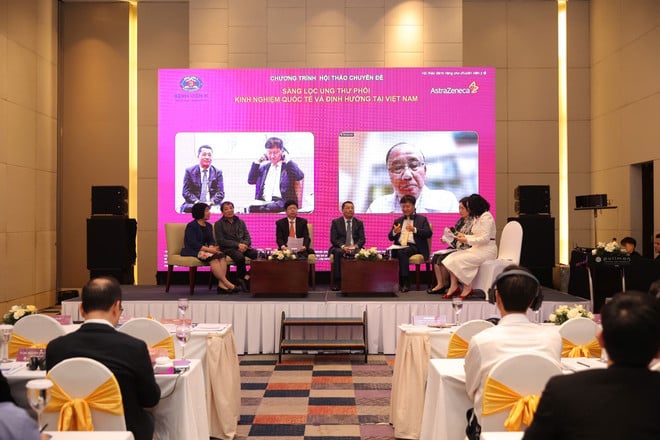
![[Photo] Vietnam and Sri Lanka sign cooperation agreements in many important fields](https://vphoto.vietnam.vn/thumb/1200x675/vietnam/resource/IMAGE/2025/5/5/9d5c9d2cb45e413c91a4b4067947b8c8)





















![[Photo] President Luong Cuong and Sri Lankan President Anura Kumara Dissanayaka visit President Ho Chi Minh relic site](https://vphoto.vietnam.vn/thumb/1200x675/vietnam/resource/IMAGE/2025/5/5/0ff75a6ffec545cf8f9538e2c1f7f87a)








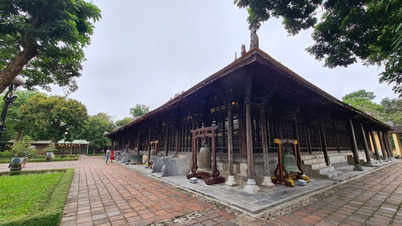






















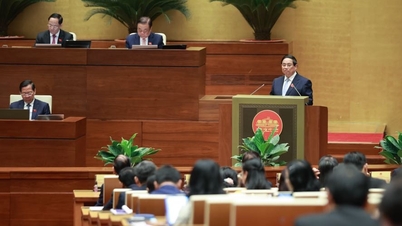

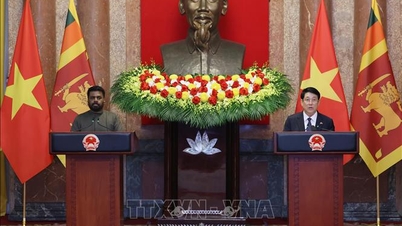
![[Photo] President Luong Cuong presided over the welcoming ceremony and held talks with Sri Lankan President Anura Kumara Dissanayaka](https://vphoto.vietnam.vn/thumb/402x226/vietnam/resource/IMAGE/2025/5/5/351b51d72a67458dbd73485caefb7dfb)

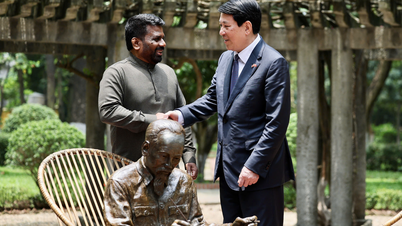









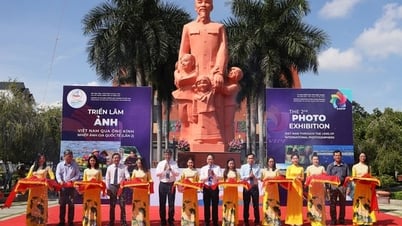






















Comment (0)